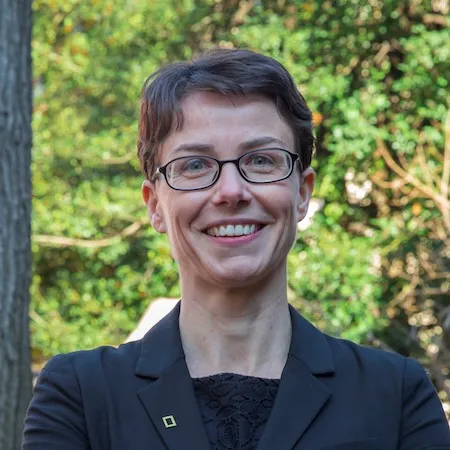This is a closed workshop designed for SESYNC Postdoctoral Fellows.
The Immersion Program centers around a series of collaborative workshops led by Immersion Distinguished Scholars. These workshops are designed to immerse participants in theories and methods foundational to understanding current environmental challenges and their underlying socio-environmental systems.
Presenters

Matthew C. Fitzpatrick
Dr. Matthew C. Fitzpatrick is Associate Professor at the Appalachian Laboratory of the University of Maryland Center for Environmental Science in Frostburg, Maryland. He is a quantitative global change ecologist interested in how climate drives ecological patterns and processes, with an emphasis on understanding the distribution of species, patterns of biodiversity, and range expansion of native and introduced organisms. He has worked in both terrestrial and aquatic systems and across scales of biological organization from genes within genomes to species assemblages across the globe...

Matthew C. Fitzpatrick
Dr. Matthew C. Fitzpatrick is Associate Professor at the Appalachian Laboratory of the University of Maryland Center for Environmental Science in Frostburg, Maryland. He is a quantitative global change ecologist interested in how climate drives ecological patterns and processes, with an emphasis on understanding the distribution of species, patterns of biodiversity, and range expansion of native and introduced organisms. He has worked in both terrestrial and aquatic systems and across scales of biological organization from genes within genomes to species assemblages across the globe. Fitzpatrick holds a PhD in ecology and evolutionary biology from the University of Tennessee and held a postdoctoral position at the Harvard Forest. He was a Distinguished Visiting Researcher at CSIRO Land & Water in Canberra, Australia from 2017–2018.

Heather Lynch
Dr. Heather Lynch is a quantitative ecologist and an Associate Professor at Stony Brook University with a joint appointment in the Department of Ecology & Evolution and the Institute for Advanced Computational Science. Heather’s research is focused on the distribution and abundance of Antarctic wildlife, particularly Antarctic penguins, and the development of decision support tools to provide up-to-date information to Antarctic stakeholders. She currently serves as Principal Investigator for a large, multi-institution National Science Foundation award tasked with building the...

Heather Lynch
Dr. Heather Lynch is a quantitative ecologist and an Associate Professor at Stony Brook University with a joint appointment in the Department of Ecology & Evolution and the Institute for Advanced Computational Science. Heather’s research is focused on the distribution and abundance of Antarctic wildlife, particularly Antarctic penguins, and the development of decision support tools to provide up-to-date information to Antarctic stakeholders. She currently serves as Principal Investigator for a large, multi-institution National Science Foundation award tasked with building the cyberinfrastructure required to unite high resolution commercial imagery and high-performance computing for imagery-enabled science in the polar regions. Heather has led the development of the Mapping Application for Penguin Populations and Projected Dynamics (MAPPPD; penguinmap.com), an interactive search engine designed to facilitate the development of Visitor Guidelines and the design and monitoring of protected areas. She has an AB in Physics from Princeton University, an MA in Physics from Harvard University, and a PhD in Organismic and Evolutionary Biology from Harvard University.

Claudio Gratton
Dr. Gratton has been on the faculty in the Entomology department at the University of Wisconsin–Madison since 2003. His research group works broadly on the landscape ecology of arthropods in managed and natural environments. He is particularly interested in the interconnections of habitats and ecosystems in the landscape. His research group has examined the role of unmanaged “non-crop” lands in the agricultural matrix and their effects on the abundance and diversity of beneficial insects including predators and pollinators and their effect on the provisioning of ecosystem services such as...

Claudio Gratton
Dr. Gratton has been on the faculty in the Entomology department at the University of Wisconsin–Madison since 2003. His research group works broadly on the landscape ecology of arthropods in managed and natural environments. He is particularly interested in the interconnections of habitats and ecosystems in the landscape. His research group has examined the role of unmanaged “non-crop” lands in the agricultural matrix and their effects on the abundance and diversity of beneficial insects including predators and pollinators and their effect on the provisioning of ecosystem services such as biological control and pollination in agricultural habitats. He has also worked on the connections between aquatic and terrestrial ecosystems. Dr. Gratton received his BS in Biology from the University of Illinois at Urbana-Champaign (1991) and his PhD in Entomology from the University of California – Berkeley (1997). At UW he teaches courses in Basic and Applied Insect Ecology, Agroecology, Field Ecology, and Multivariate Methods in Ecological research. A full list of his research publications can be found here.